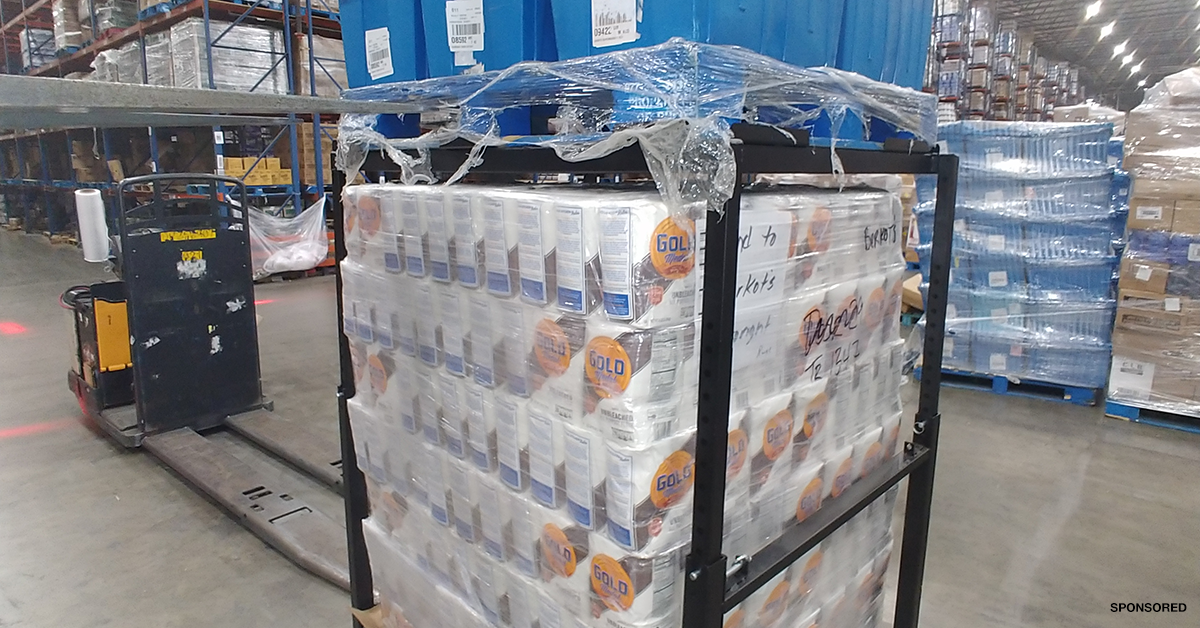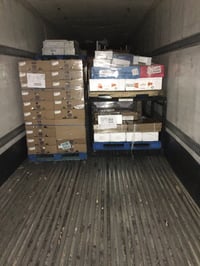Maximizing Truck Productivity in a World of Shortages
by CCT Shipping Frames | Sponsored Content, on Oct 10, 2022 1:34:01 PM

A significant number of market challenges are creating inefficiencies in supply chains and giving food shippers major headaches: a weak economy, rising inflation, volatile fuel prices, the driver shortage, and port congestion, to name a few. In particular, shortages in these areas are presenting significant challenges to those in the food industry:
Labor Shortages.
The Great Resignation has created a major vacuum in the workforce, and ultimately is creating volatile supply and demand in the food chain – from manufacturing and supply chain to logistics, warehousing and transportation.
Truck and Railcar Shortages.
Freight shipping delays, lower truck production, a severe shortage in truck drivers and available crews in rail yards are all factors creating a significant void in capacity.
Ports Unable to Unload.
North American ports are clogged with containerships as importers jockey for spots in ports in the United States and Canada – ultimately hitting deficits in all operations.
Increasing Transportation and Fuel Costs. Historically approximately one-third of all supply chain costs involve transportation. A faltering global economy is exponentially increasing transportation-related costs.
The Opportunity: Unused Capacity in Trailers, Containers
 With these shortages in mind, it’s now critical that food shippers and their partners maximize the capacity and productivity of their trailers or containers – whether it directly involves their private fleets or equipment they’re using through their for-hire carriers.
With these shortages in mind, it’s now critical that food shippers and their partners maximize the capacity and productivity of their trailers or containers – whether it directly involves their private fleets or equipment they’re using through their for-hire carriers.
How big is the problem of unused capacity? For example, recent estimates typically place empty miles around 20 percent, but for the most familiar type of interstate freight – heavy trucks with box trailers or containers - empty miles are substantially higher, says Charles Kiolbasa, Chief Executive Officer of CCT Shipping Frames. “And while unused capacity in partially unfilled trailers or containers are not closely monitored, there’s clearly a significant opportunity to increase efficiencies and save on transportation costs if more concentrated efforts were placed on full space utilization,” says Kiolbasa.
Because let’s face it: Unused capacity over-the-road, on rail, or over the ocean can lead to inefficiencies and higher costs – as well as more damage to products and materials in-transit due to extra shifting.
Another opportunity to increase productivity is to proactively stage freight in the dock area to minimize dwell time, says Kiolbasa: “When you do this, you can ‘load and go’ and get the driver quickly on their way.”
Kiolbasa recommends that shippers and their providers be more proactive and strategic in “building their shipments” and staging their freight. He says there are opportunities to accomplish this in several areas:
- Engage the appropriate operations, sales and customer service teams to collaborate on creating efficient sales and fulfillment processes
- Invest in the right order fulfillment and load planning software to effectively manage the entire order process
- Lastly, invest in technologies and equipment that maximize your trailer and capacity. For example, CCT Shipping Frames manufactures a patented shipping frame that maximizes freight efficiencies in a trailer or container and helps to minimize damage while loading, unloading, and in-transit.
“Companies involved in the food chain – whether they be food shippers, carriers or providers – must look at ways to maximize truck productivity in this world of shortages.”
For more information, visit CCTShippingFrames.com or call 630-441-7046.
Like this kind of content? Subscribe to our "Food For Thought" eNewsletter!
Now more than ever, professionals consume info on the go. Distributed twice monthly, our "Food For Thought" e-newsletter allows readers to stay informed about timely and relevant industry topics and FSA news whether they're in the office or on the road. Topics range from capacity, rates and supply chain disruption to multimodal transportation strategy, leveraging technology, and talent management and retention. Learn More



